이 날의 일정은 매우 간단하다. '언론의 오류를 근절하는 영예로운 위원회(Glorious Committee to Root Out Errors in the Media)'의 창립자인 내가(사실 회원도 혼자 뿐이지만) 왜 외국인들이 항상 옳은지에 대해서 간단히 설명한다.
|
이런 행사는 열려는 이유는 (모두들 알고 있겠지만 4월1일은 만우절이다) 최근 한국의 대형 투자기관인 국민연금이 두명의 재벌 회장이 이사회에서 등기이사로 재선임되는 것을 반대하기로 했다는 언론 보도 때문이다.
당시 언론들은 국민연금의 의결권을 행사하는 보건복지부 기금운용위원회 산하 주주의결권 전문위원회(위원장 박상수 경희대 교수)가 12일 회의를 열고, 정몽구 회장과 박용성 회장이 각각 현대자동차와 두산인프라코어의 등기이사에 선임되는 데 반대키로 했다고 전했다.
각 언론들은 국민연금이 주주로서의 권리를 행사하고자 하는 내용을 정확하게 보도했다. 주주에게 환원되는 이익의 가치를 올리고자 하는 펀드의 의무 또한 잘 설명됐다. 연금펀드는 또 재벌 총수들의 범죄 행위(횡령·배임 등 도덕적 결함이 있다는 이유)에 대해 특별히 이의를 제기하기도 했다.
이러한 설명을 뒷받침하는 근거로 언론은 국민연금 주주의결권행사 위원회 박상수 위원장이 전한 ‘우리의 이번 결정은 기업과 주주가치를 훼손시키는 기업가들을 저지하고자 하는 원칙에서 내려 진 것’ 이라는 메시지를 인용했다.
그의 말처럼, 이는 돈에 대한 것만은 아니다. 이 결정에는 도덕적 요소가 담겨 있다. 한국 사람들의 돈이 법적으로 온전하지 못한 기업에 들어가서는 안된다는 것이다. 정몽구 회장과 박용성 회장은 회계부정과 횡령 혐의로 집행유예를 선고 받았다.
그러나 언론은 역사적인 맥락을 설명하는 데는 실패했다. 특히 언론이 한때 펀드가 재벌구조에 대항하여 움직인 것에 전적으로 반대했던 사실을 말이다.
SK그룹의 지분을 15% 취득한 소버린 자산운용사를 예로 들어 보자. 소버린은 2004년과 2005년에 법정에서 대규모 회계부정 혐의로 두 번의 유죄판결을 받은 최태원 회장이 회장직에서 물러 날 것을 요구했다.
이 사안과 관련해 잘못된 보도가 주를 이루는 바람에 한국 대중은 소버린을 최태원을 대표로 하는 순수 한국 기업을 공격하는 악한 외국 자본으로 인지하게 됐다. 누구든지 사실을 확인하려 한다면 정반대의 상황을 알 수 있었을 것이다. 그러나 어떤 미디어도 그러한 시각을 가지고 접근하지 않았다.
이것은 기자들의 잘못만은 아니다. 사실 정확하게는 언론사 광고국의 영향력이 더 큰 문제였다. 당시 SK그룹은 수십억원의 돈을 들여서 광고 캠페인을 벌였다.(결국 이것은 주주들의 적은 배당을 초래했겠지만). 그래서 주주의 다른 입장이 신문에 드러나는 것을 막을 수 있었다.
이 캠페인은 소버린에 대해서 매우 부정적인 분위기를 만들었고, 그 결과 어떤 기자나 칼럼니스트도 감히 이 모순된 진실에 대해서 설명할 용기를 내지 못했다. 소버린은 투명성을 강조하는 펀드이고, 이들이 한국에서 한 실수는 한국인들이 재벌 기업의 회장이 법정에 서는 것에 대해 심각하게 받아들일 것이라고 생각한 모순된 진실 말이다.
이 사건은 단지 너무 많은 이익을 거두었다는 이유로 한국 미디어에 의해 비난받고 상처가 난 외국 금융기관들 중의 하나를 다뤘을 뿐이다. 외국 금융기관의 평판에 난 흠집은 곧 한국 금융기관들 역시 (언론의 지적없이) 똑같이 따라할 수 있는 발판을 마련해준다.
지난 5년간 이런 비루한 방식의 보도관행이 국민 정서를 이끌었고 이는 곧 투자자 사이에서 한국의 평판을 악화시켰다. 한국을 다시 매력적으로 만들기 위한 해답은, 언론이 외국인을 비난하지 말자는 것이 아니다. 진실과 법을 존중하자는 것이다. 4월1일 행사에서 봅시다.
Media to Apologize to Foreigners on April 1
Here’s a notice for Korean journalists: in the interest of reassuring foreigners that Korea is not anti-foreign, all are invited to attend a “Foreigners – I am Sorry” ceremony to be held at the World Cup Stadium on April 1.
The planned program will be simple. As the founder of the “Glorious Committee to Root Out Errors in the Media,” a one-man civic group, I will give a short speech explaining why foreigners are always right.
Then the entire Korean press will stand up, bow to me, and say, “Foreigners, I am Sorry. You Were Right, We Were Wrong.” Reporters observed shedding tears will be invited to cover a similar meeting with civic groups.
The specific reason for the April 1 timing concerns media coverage of the vote last week by the National Pension Service, the country’s leading institutional investor, against two business tycoons bidding for re-election to the chairmanship of their respective chaebol.
Newspapers reported that the Health and Welfare Ministry announced on Wednesday that the fund, which comes under the ministry, would vote on Friday to remove Chairman Chung Mong-koo and Chairman Park Yong-sung from the boards of Hyundai Motor and Doosan Infracore, respectively. (CHECK: Later reports confirmed that on Friday its representatives did vote as promised, but lacked sufficient support from other shareholders to be successful.)
These facts were reported correctly. The stories also correctly explained the reason behind the decision as being the obligation of any fund is to increase its return to shareholders. The pension fund took action specifically against chaebol heads who are convicted criminals.
In support of this explanation, newspaper stories quoted the man responsible at the fund, Park Sang-soo: “The decision is based on the principle that we oppose managers who have damaged corporate and shareholder values,” he said.
As this quote suggests, it’s not all about money. There’s also a moral element in the decision. The Korean people’s money should not be going into companies which are legally dodgy. Mr. Park of Doosan and Mr. Chung of Hyundai have received suspended jail terms for accounting fraud and embezzlement.
But the newspapers failed to give the historical context. Especially, they failed to mention that they had completely opposed the idea the last time a fund movedagainst a chaebol. I am referring to Sovereign Asset Management, which owned 15 percent of SK Corp, and in 2004 and 2005 requested that Chey Tae-won step down as the chairman after being convicted twice for huge accounting fraud in Korean courts.
On that occasion, thanks to widespread misreporting, the Korean public came to associate Sovereign with evil foreign capital trying to attack our beloved innocent Korean nation-builders, represented by Mr. Chey. Anyone looking at the facts would know the truth was the opposite.
But no one looked at the facts.
To be fair to reporters, it was not all their fault. If we want to be accurate about this, the real problem was the influence of the advertising department in newspapers over the editorial department. In what must surely be one of the most ironic moments in Korean corporate history, SK management spent tens of billions of won on increased advertising (thereby reducing the profit to shareholders) as part of a campaign to make sure that one of its own shareholder’s viewpoints did not appear in the paper.
This campaign created such a negative climate against Sovereign that it would have been suicide for any reporter or columnist to actually explain the ironic truth that Sovereign was a fund that specialized in transparency and that its mistake in Korea was to assume that Koreans would take a court ruling against a chaebol head seriously.
This case is just one of many where foreign financial institutions have been mauled by the lions of the Korean media, accused of such nonsensical crimes as making “excessive profits” (hands up, children, if anyone knows what that means) and had their reputations damaged only to find, a short while later, Korean financial institutions doing exactly the same practices without the press even being concerned.
In the past five years, this shabby reporting habit has stirred public sentiment in a way that has done very serious damage to Korea’s reputation among investors and business people.
The solution, to make Korea attractive again, is not for the newspaper to stop criticizing foreigners. The real solution is to respect truth and the law.
See you April 1!
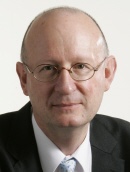
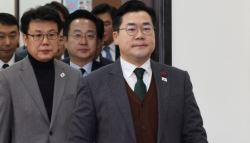
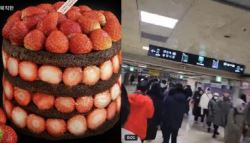
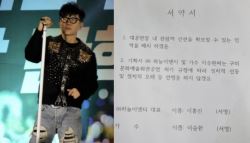
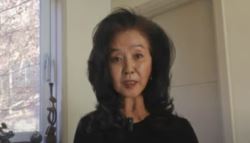
!['7억8000만원' 로또 1등 남편 살해한 여성이 한 말 [그해 오늘]](https://image.edaily.co.kr/images/vision/files/NP/S/2024/12/PS24122400001t.jpg)